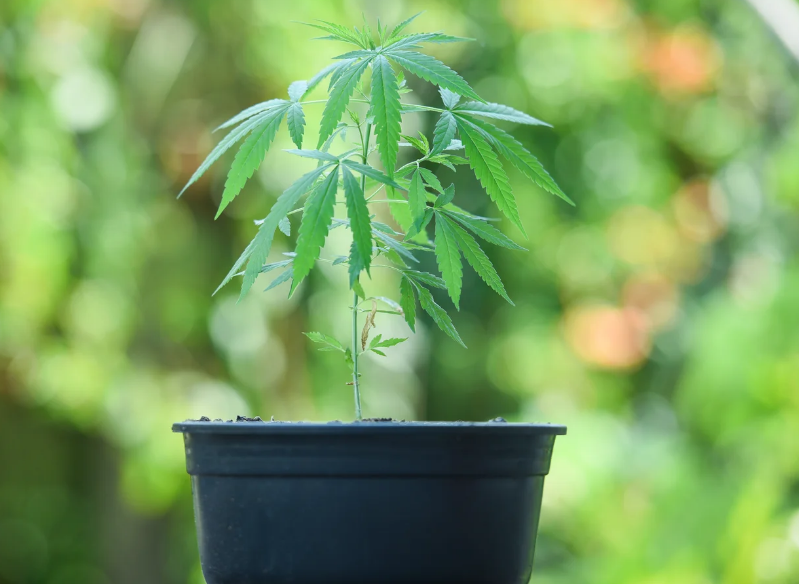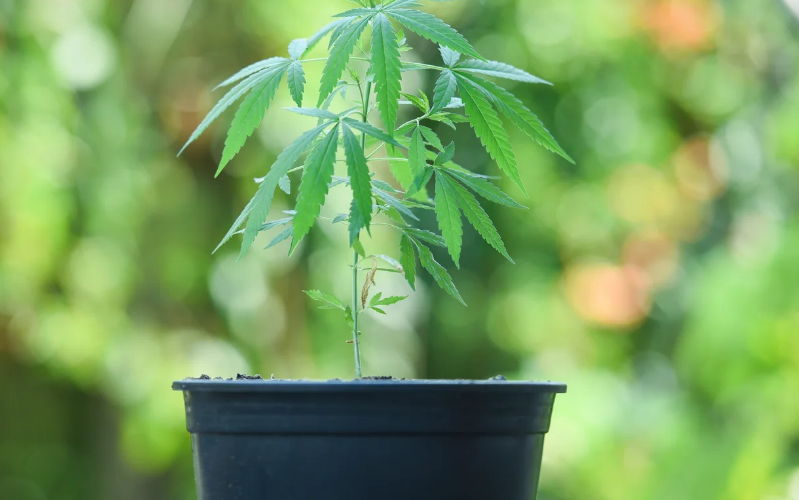In a bold shift that’s turning heads in Washington, Republican Sen. Thom Tillis from North Carolina is calling for a full federal framework to regulate marijuana, complete with taxes and a way for states to join in on legalization. This push comes as he slams how one tribe in his home state handles cannabis sales, raising questions about safety and rules. What does this mean for the future of pot policy across America?
Tillis Breaks from Party Lines on Cannabis
Sen. Thom Tillis isn’t shy about his stance. During a recent Senate Judiciary Committee hearing, he pressed Attorney General Pam Bondi on the messy clash between state and federal marijuana laws. “People have spoken,” Tillis declared, pointing to how many states have already legalized cannabis in some form.
This isn’t just talk—Tillis wants action. He suggests treating marijuana like alcohol or tobacco, with clear federal guidelines. That includes a federal excise tax to bring in revenue and rules to keep things safe. But he stresses he’s no foe of cannabis. “I’m not an anti-cannabis person,” he told reporters, but he insists on strict controls to avoid chaos.
His comments build on months of signals. Back in June 2025, Tillis said opponents of legalization “have lost” the fight. He argued for a system where states can opt in, setting their own paths without federal roadblocks. This could reshape how America handles weed, especially as more places push for reform.

Concerns Sparked by North Carolina Tribe’s Moves
Tillis’s push isn’t coming out of nowhere. He’s fired up about the Eastern Band of Cherokee Indians in North Carolina, who legalized cannabis on their lands despite the state’s holdout on broader reform. In early October 2025, Tillis urged the Department of Justice to probe claims that the tribe markets pot to young people and ships it beyond tribal borders.
He highlighted worries over flavored products and imports from China, which he says dodge safety checks. “We need to get rid of flavorings, eliminate Chinese imports,” Tillis said in an interview published Thursday. The tribe voted to allow adult-use marijuana in 2023, and sales have boomed, but critics like Tillis argue it’s creating loopholes in a state where cannabis remains mostly illegal.
This tribal setup spotlights bigger issues. North Carolina has toyed with medical marijuana bills, like one in 2024 that aimed to legalize it through hemp regulations. Yet progress stalls, leaving gaps that tribes fill. Tillis sees this as a wake-up call for federal oversight to prevent uneven enforcement.
- Tribal leaders push back, calling Tillis’s claims unfounded and defending their sovereign rights.
- Federal probes could set precedents for how tribes handle cannabis amid state-federal tensions.
- Sales data shows the tribe’s operations bring in big bucks, but at what cost to public health?
Path to Federal Regulation and Taxes
Imagine a world where marijuana gets the same treatment as beer or cigarettes. That’s Tillis’s vision: a regulatory setup with a federal excise tax starting low, maybe around 3.75% as floated in past GOP drafts, to fund oversight and deter black markets.
He wants states to “opt in” to legalization, giving them flexibility while ensuring national standards. This could include exploring cannabis for medical uses like PTSD or pain relief, as Tillis mentioned in a September 2025 hearing. “Congress must step up,” he said, urging studies on its benefits.
But challenges loom. Critics worry taxes could drive up prices, hurting legal markets. Supporters point to success in states like Colorado, where legalization brought over $2 billion in tax revenue since 2014, according to the Colorado Department of Revenue’s 2023 report. Tillis aims to mirror that nationally, but with safeguards against youth access and unsafe products.
A table of potential impacts:
| Aspect | Potential Benefit | Possible Drawback |
|---|---|---|
| Revenue | Billions in federal taxes | Higher costs for consumers |
| Regulation | Safer products, less crime | Bureaucratic hurdles for states |
| Health | Research on medical uses | Risks of increased youth use |
This framework could end the federal ban under the Controlled Substances Act, where marijuana sits as a Schedule I drug. Recent moves, like the Biden administration’s 2024 rescheduling push, set the stage, but Tillis calls those “half-assed” and demands more.
Broader Implications for States and Users
Tillis’s ideas could ripple across the U.S. For states like North Carolina, it might speed up reform. A 2023 vote by the Cherokee tribe showed strong support—over 70% favored adult-use pot, per Associated Press reports. If federal rules kick in, it could harmonize laws, making travel and business easier for users.
On the flip side, some fear overregulation. Advocacy groups like the Marijuana Policy Project, in a 2025 analysis, warn that high taxes might keep illegal markets alive. Tillis counters by focusing on safety, like banning appealing flavors that target kids.
Everyday Americans stand to gain or lose big. Legal access could help veterans with PTSD, as studies from the Department of Veterans Affairs in 2022 suggested cannabis eases symptoms for some. But without rules, risks like impaired driving rise—federal data from the National Highway Traffic Safety Administration shows marijuana-related crashes up 10% in legal states since 2018.
Tillis’s repeated calls, from April 2025 hearings to now, show he’s serious. He even criticized “unregulated chemically infused hemp products” flooding stores, pushing for a crackdown.
As Sen. Thom Tillis keeps beating the drum for federal marijuana reform, it’s clear this could mark a turning point in America’s long weed debate. By proposing taxes, state opt-ins, and tough rules, he’s bridging gaps between prohibition and freedom, all while addressing real concerns like tribal sales in North Carolina. This isn’t just policy—it’s about safer choices, economic boosts, and listening to what people want.




